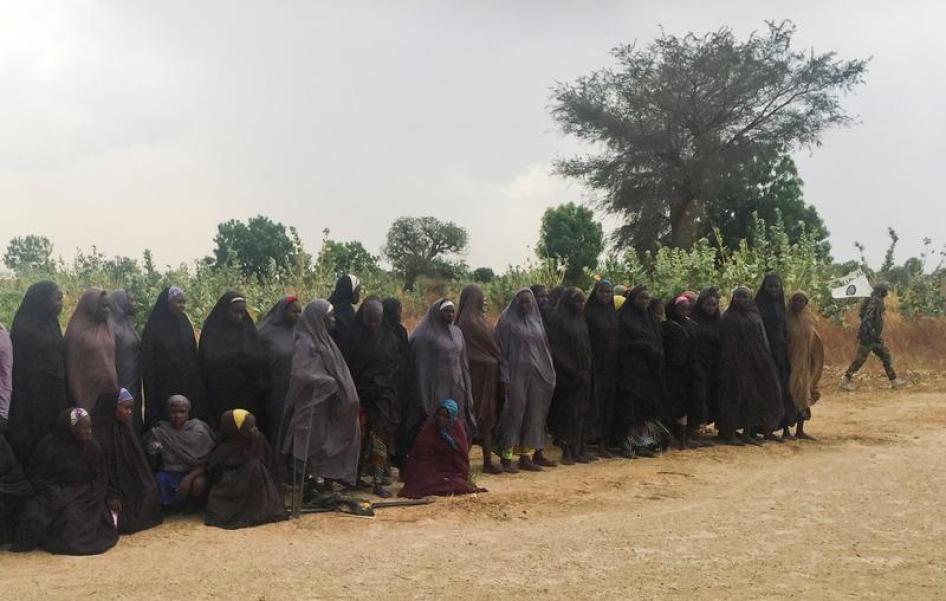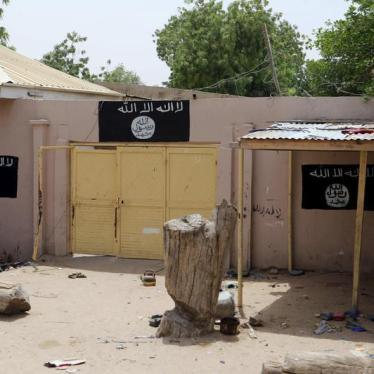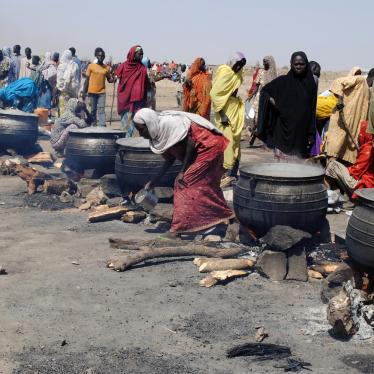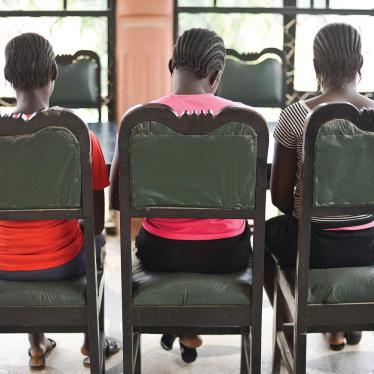Last weekend’s release of 82 missing Chibok schoolgirls abducted by Boko Haram in Nigeria three years ago is wonderful news for their families and provides some hope for the loved ones of those still held. But the celebration was marred by Nigerian authorities’ dismal failure to protect the traumatized girls’ privacy.
On Sunday, the government confirmed the girls had been freed in exchange for the release of some detained Boko Haram suspects.
Yet the authorities inexplicably publicized the girls’ names to news outlets, including via the social media handle of the president’s media aide, Malam Garba Shehu. This exposes the girls to unnecessary scrutiny and possible stigma, and violates the basic rights of survivors of the type of violence and abuse by Boko Haram to anonymity.
To date, 161 out of 276 Chibok girls abducted by the insurgents from their school in April 2014 have been released or escaped.
Questions remain about the legal status of the released girls. The 21 girls freed in the first round of negotiations between Boko Haram and the government last October are still in government custody. In December, the media reported that the girls’ parents complained about lack of access to their daughters, including during a brief visit to Chibok over the Christmas holidays.
Authorities should clarify to families whether the rescued girls are being held in preventive detention or as criminal suspects. According to media reports, a few parents of the 21 previously released girls have information that their daughters are attending school, and are receiving medical and psychological support, while other parents have no information at all. Families should have access to their daughters and be informed of the reasons for their continued detention.
And while the Chibok girls are the highest profile victims of Boko Haram’s abductions, authorities should extend the negotiations for release to other missing adults and children, including more than 500 children taken from Damasak in November 2014.
|
Dispatches
Nigeria Fails to Protect Freed Chibok Schoolgirls’ Privacy
Authorities Should Ensure Families’ Access to Their Daughters
Your tax deductible gift can help stop human rights violations and save lives around the world.
Tags
Most Viewed
-
September 27, 2014
Guinea: 5 Years On, No Justice for Massacre
-
April 17, 2024
West Bank: Israel Responsible for Rising Settler Violence

-
April 27, 2021
A Threshold Crossed

-
October 29, 2020
“I Sleep in My Own Deathbed”

-
November 25, 2019
A Dirty Investment





